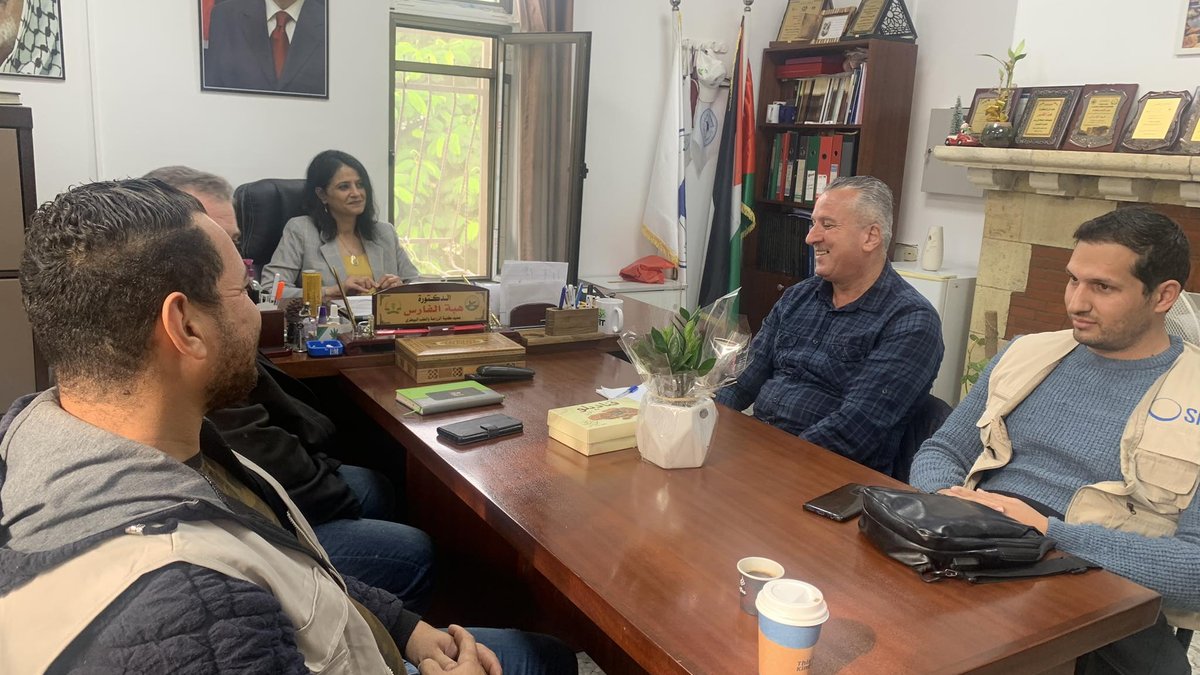
As part of the "Build Community Resilience and Improve Livelihoods and Food Security through Safe Agricultural Practices in the West Bank, Palestine" (PARC) project, the Faculty of Agriculture and Veterinary Medicine hosted a delegation from Islamic Relief France, represented by Dr. Aql Abu Qara and Eng. Mohammad Adwan, on Thursday, December 7, 2023. The visit was attended by the Dean of the Faculty, Dr. Hiba Al-Fares, Dr. Tawfiq Al-Qabaj, Head of the Department of Plant Production and Protection, and the project coordinator, along with several agricultural engineers overseeing the project.

The purpose of this visit was to review the progress of the project, highlight key achievements realized on the ground in the recent period, and discuss the challenges faced by the project, offering suitable solutions to overcome these obstacles in the upcoming phases.
The project aims to enhance good agricultural practices by integrating food safety, environmental standards, and decent work criteria. It includes training programs for targeted farmers, both practical and theoretical, on Good Agricultural Practices (PAL-GAP), providing technical support, training on acquired knowledge, and monitoring the performance of farmers' practices according to the guidelines and standards outlined in PAL-GAP. The initiative encourages agricultural production and the protection of crops with comparative advantages in terms of production efficiency.

It is important to note that the project is funded by the French Development Agency (AFD) and Islamic Relief France (SIF). It is implemented by the Faculty of Agriculture and Veterinary Medicine and the Energy, Water, and Food Security Research Center at An-Najah National University, in partnership with Islamic Relief and the Palestinian Economic and Social Development Center (ESDC), in cooperation with the Palestinian Standards Institute (PSI) and the Ministry of Agriculture (MoA).
In its current first phase, the project targets 400 farmers, including 122 female farmers. Based on the successful outcomes of this phase, the project will expand in its second phase to benefit more farmers from various Palestinian villages in the northern governorates of Tulkarem, Jenin, and Nablus.
The visit also included a tour of a farm belonging to one of the project beneficiaries in Thannabeh.
عدد القراءات: 168





